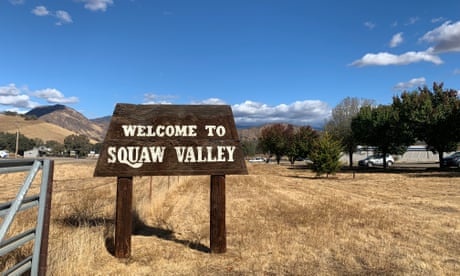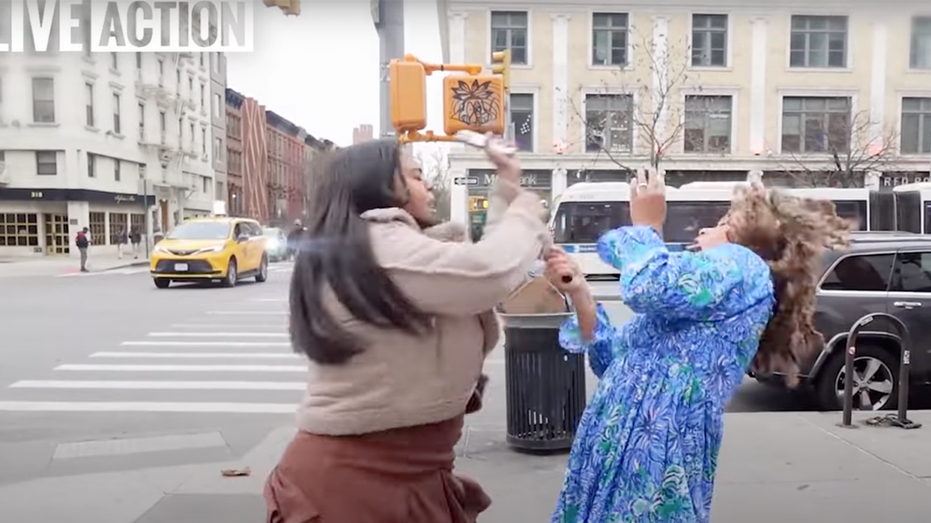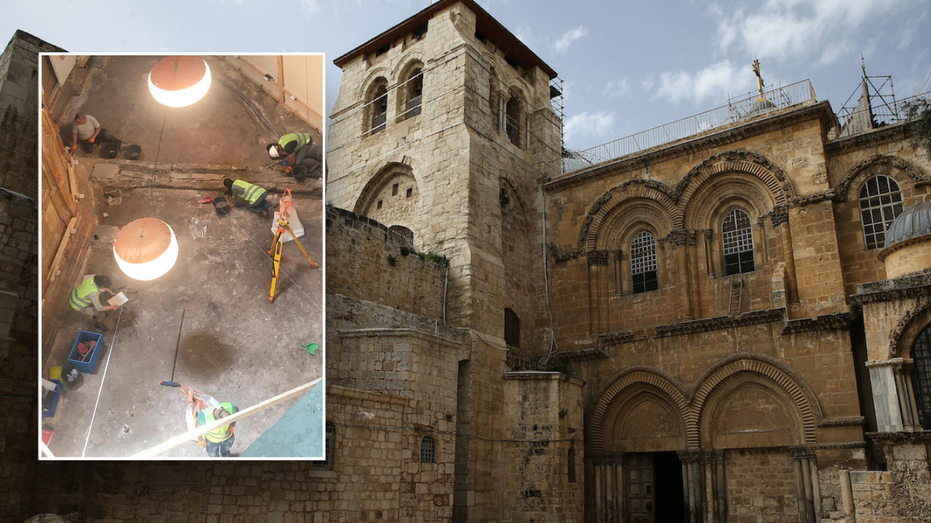- by foxnews
- 05 Apr 2025
Indigenous activists want to change a California town?s racist name. Officials are pushing back
Indigenous activists want to change a California town’s racist name. Officials are pushing back
- by theguardian
- 26 Nov 2021
- in news

In September, the popular Lake Tahoe ski resort Squaw Valley announced it would change its name, recognizing that the term was "derogatory and offensive". It became official with a press release and a new sign.
But that's not the end of the name in California. Hundreds of miles south in Fresno county, near Kings Canyon national park, there is another Squaw Valley. The central California town of about 3,500 people dates back to the 19th century, and is one of nearly 100 places in California to use the controversial term in its name.
Derived from the Algonquin language, the word "squaw" is believed to have once meant "woman", however, it has become a misogynistic and racist term used to disparage Indigenous women. It's also a commonly used placename in the US - more than 650 federal sites include it in their names.
After 2020's historic protests against racism and white supremacy in the US after the murder of George Floyd, cities, schools and parks across the US began reconsidering controversial names with racist histories. A California commission renamed a park that had been named for a white settler accused of murdering Indigenous people. The Placer county board of supervisors voted to change a racist street name in north Lake Tahoe in response to concerns from residents. This month Deb Haaland, the interior secretary, announced she would take steps to remove the misogynist and racist term from federal lands across the US.
The renaming efforts in Fresno county accelerated after the Tahoe ski resort first announced its planned change. Roman Rain Tree, a member of the local Dunlap Band of Mono Indians and Choinumni tribes who lives 30 miles away from the land he calls S-Valley, hoped the Tahoe decision would convince officials in Fresno county that it was time for a change there, too, and do away with a name that he says "memorializes the sexualized and genocidal acts that early settlers have perpetrated on Indigenous people in this country".
But the effort has turned into a sometimes tense battle between activists such as Rain Tree and officials in this conservative region, who argue that the name is part of the area's identity and any plan to change it must come from residents themselves.
"The process has to be driven by the community," said Nathan Magsig, the Fresno county supervisor who represents the area. "A name is not just something on a piece of paper. Names are identity."
When Rain Tree tried to meet with the board of supervisors, he says, he was told he would first need to show there was support for a name change. Rain Tree started an online petition, which has since gathered nearly 20,000 signatures from people across the US.
He and other activists have since held panels and released public service announcements about the name. They have also started working with the ACLU, who say evaluating names, and who and what they honor, is important.
"There is no reason why there continue to be placenames that are racial and misogynist slurs," said Tedde Simon, an Indigenous justice advocate with the ACLU of northern California.
That message has resonated with Linda Tubach, who has lived in the rural Fresno county outpost for 10 years. During that time, the retired high school social studies teacher has been embarrassed to tell colleagues and friends where she lives. When her husband was introduced at a recent event, the host didn't want to say where the couple lived.
"It's embarrassing to even put my return address on envelopes," she said. "Words send a message and that's something that I understand as a social studies teacher."
"There's plenty of local residents that are horrified by the name and would prefer a different name," Tubach said.
"It's not just the area that residents are affected by this, it's everybody throughout California," McCloskey added.
But not everyone supports the change. The "overwhelming" majority of correspondence Magsig says he has received is from residents opposed to changing the name, he said. Among those is Lonnie Work, a fifth-generation Fresno county resident, who owns a realty company and motel named for the town. Work said he was concerned that the effort didn't originate with someone who currently lives in the community.
"I am not against the name being changed to something, if it's something that the people that live here want to do. I am against people using it for a political agenda," Work said. "Regardless, I'm not going to change the name of my business."
Rain Tree is open about the fact that he and some other activists don't live in the town, but says that is due, in part, to racist policies that pushed their ancestors out. He and others have been treated as outsiders rather than people with ties to the area, he said. Simon, the ACLU advocate, said county officials have tried to paint the movement as being driven by the organization.
When Rain Tree drives past the town's sign as he visits, it serves as a grim reminder of the atrocities Indigenous people have suffered, and the disproportionate rates of missing and murdered Indigenous women and girls.
Doing away with the name will require educating residents about its history, he said, and the pain it brings for many Indigenous people. But local officials haven't taken the effort seriously, he said. Activists recently held a protest outside the board of supervisors meeting where Rain Tree was escorted out while offering public comment. While speaking he had turned his back on the board to demonstrate how he felt the supervisors were treating activists.
Magsig, who represents the area, said he is open to changing the name if that's what residents want, but that it wouldn't undo the past, and could cause harm.
"Would you be willing to change your name? Or does [it] have significance to you?" he said. "There are names and things which were very hurtful in the past but by changing a name it doesn't erase the past but it does cause harm. To the extent there are wounds attached to a name, for healing what needs to be done is to talk about these things more."
Despite the lack of support from local officials, Rain Tree is hopeful that one day the town will be known by a different name. He and other activists have suggested Nim Valley, which means human, or Bear Mountain Valley, a name shared by the local library.
"The spirit of the community is not defined in the name," he said. "The spirit of the community is defined by how people come together and how people respond in adverse moments that challenge the community as a whole. This is one of those moments."
- by foxnews
- descember 09, 2016
Excavation near site where Jesus was crucified and buried results in ancient discovery
Proof of ancient olive trees and grapevines, consistent with a Bible verse, has been found at the Church of the Holy Sepulchre in Jerusalem, an archaeologist confirms.
read more


